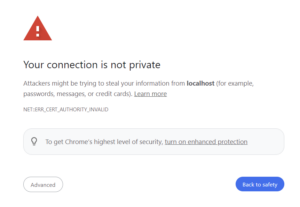ownCloud Infinite Scale is a user-centric, cloud-native, open source, file sharing and collaboration platform that offers infinite scalability and enables complete digital sovereignty. Now, it is possible to set up and test this powerful product on your own computer with just a few easy steps. The set-up script runs on 64 bit AMD/Intel CPU based Linux machines, 64 bit Raspberry Pi with Raspbian OS, and MacOSX. The flavor of Linux should not make a difference. But even if you just have a Windows machine at your disposal, you have the chance to explore the possibilities of ownCloud Infinite Scale! You just have to enable the Windows Subsystem for Linux (WSL).
In this guide, we will show you how to set up Windows Subsystem for Linux (WSL) on your Windows machine, walk you through the installation process of ownCloud Infinite Scale on a Linux system, and outline a quick testing process.
How to install Linux on Windows with WSL
Windows Subsystem for Linux (WSL) is a feature of Windows that allows you to run a Linux environment on your Windows machine, without the need for a separate virtual machine or dual booting. Follow Microsoft’s official documentation to easily install WSL on your Windows system. Now you are ready to test Infinite Scale.
Set up and test Infinite Scale on Linux
- Open a terminal on your device and navigate to a directory within your home where you have the capacity to store data.
- Type the following command line (however, not as user root):
- curl -L https://owncloud.com/runocis.sh | /bin/bash
This automatically pulls the latest stable version of Infinite Scale from the official download server of ownCloud onto your computer. It creates a configuration and a start script, and starts the server. The script detects the platform that you are running to download the right binary version.
- Once the server is started, Infinite Scale’s web client can be accessed by visiting the URL https://localhost:9200/.
- Since this is an installation for testing purposes only, it does not have a proper certificate configured. That is why your browser is complaining about the certificate. You have to accept the certificate as a security exception in order to proceed. (In Chrome, click on “Advanced” in the security warning and then on “Proceed to lacalhost (unsafe)”. In other browsers, this works similarly. And indeed, that is one of the reasons why you’re not supposed to use this sneak peak in production or even exposed to the internet.

By clicking on “Advanced” you can bypass this message.
- The set-up script also creates several demo users upon first start-up on your Infinite Scale in order to explore all the features especially different user groups. Please find the description of the demo users here .
- Now you’re ready to log in with any of the demo users and explore the possibilities of Infinite Scale.

Infinite Scale interface
Further information
- The set-up script downloads the golang single binary of Infinite Scale down to the machine into a sandbox directory, called ocis-sandbox-<version>, chmod it to be executable and creates a working config and a data dir. All these happen with the privileges of the logged in user, no sudo or root involved. If you’re curious, you’re encouraged to double check the install script using, for example, the command curl -L https://owncloud.com/runocis.sh.
- If the server is stopped by pressing Ctrl-C or if you closed the Linux window on a Windows machine, you can later restart it by changing into the sandbox directory and run the script that was left behind in the sandbox with the command bash runocis.sh .

Screenshot of Infinite Scale on Linux on Windows with WSL
- The set-up script and the demo were tested on these platforms: 64 bit AMD/Intel CPU based Linux machines, 64 bit Raspberry Pi with Raspbian OS, MacOSX, and Windows Subsystem for Linux (WSL) with Ubuntu. The flavor of Linux should not make any difference.
Support and further resources
If you encounter a problem with the script or if you have suggestions for improvement, please get in touch with ownCloud CTO Klaas Freitag on Github. We are happy to receive issue reports or pull requests.
For further information and setups suitable for production, please refer to the Infinite Scale documentation.